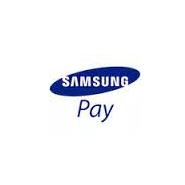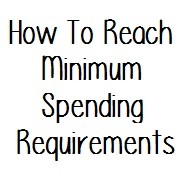Are miles, points, MS, and reselling taxable? The question comes up time and again, and I thought to start a discussion about it here.
This post is for discussion purposes only. Let us know your own thoughts in the comments below. Please consult your lawyer or tax advisor before making tax decisions.
Let’s start with a few introductions, then we’ll go through various scenarios that come up.
Contents
Reselling
If you resell merchandise for a profit, that’s obviously a business, and you’ll owe taxes like any other business. Once you earn more than $400, the law requires you to pay taxes as a business. (Amounts less than that might be subject to personal income taxes but not business taxes.)
Reselling gift cards should be the same.
Promotional Rewards
An important prefatory note is that compensation received from a business are taxable. While gifts you receive from a friend are typically not taxable (without getting into a Gift Tax issue), incentives from companies are viewed differently. It’s not a gift.
As an example, banks and shopping portals issue Form 1099-Misc to those who earn $600+ in cash referral bonuses.
Miles and Points versus Cash Back
In 2002, the IRS provided a guideline (pdf) differentiating cash rewards from miles/points. Here is their announcement:
Consistent with prior practice, the IRS will not assert that any taxpayer has understated his federal tax liability by reason of the receipt or personal use of frequent flyer miles or other in-kind promotional benefits attributable to the taxpayer’s business or official travel. Any future guidance on the taxability of these benefits will be applied prospectively. This relief does not apply to travel or other promotional benefits that are converted to cash, to compensation that is paid in the form of travel or other promotional benefits, or in other circumstances where these benefits are used for tax avoidance purposes.
So long as you aren’t using the miles as a way of avoiding taxation (e.g. getting paid in miles instead of cash), the IRS tells us that miles and points are not taxable due to their uncertain value. However, anything converted into cash would be taxable.
The IRS is apparently addressing the case of someone who gets miles and points from hotel stays and flights taken during business-paid travel and then uses up the miles for personal travel.
The same logic should apply to miles earned as a bonus. For example, if you earn miles from business purchases using an online shopping portal, it won’t be taxable even if the miles are used up on personal travel. And if you get 20,000 miles for a hair loss consultation, you wouldn’t have to worry about taxes.
Gray Areas
There are still some gray areas:
- Points which do have a cash value, such as Ultimate Rewards, which can be cashed out at one cent per point. If you do take the cash, it presumably becomes a cash back card. But what if you use the points for travel? Is there still a 1% cash value there since you could have cashed it out at that rate?
We should add that even Membership Rewards, ThankYou points, and Southwest points arguably have a cash value since they can be redeemed for merchant gift cards (like Amazon or Best Buy) and those are typically considered like cash. - Travel credits with points like Barclay Arrival or Capital One Venture can only be redeemed for travel. There might be an argument that since there if there is no cash value, it’s similar to the IRS guideline on miles and points and won’t be taxable. (We should note that part of the redemption might still be taxable since in the case of the Arrival, for example, you can cash out at .5 cents per point.)
Bank Bonuses
All bank bonuses are considered income and are taxable. Usually, the bank will file a Form 1099-INT to document the income, although they’ll occasionally send a Form 1099-Misc instead.
Banks are required to send a Form 1099-INT for amounts of $10+ and Form 1099-Misc for amounts of $600+. Though not required, some banks will send these forms for lower amounts as well.
You might bump into a bank which does not issue a Form 1099 at all. In one reader’s experience, banks like Citi and PNC have not issued any Form 1099 for cash bank bonuses. They probably consider the income to be Miscellaneous income – not Interest income – and subject to the $600 reporting threshold. Since most bank bonuses are less than $600, those don’t get a 1099.
However, the majority of banks report file this as interest income with a Form 1099-INT and must report cash bank bonuses of as little as $10. Even banks who consider it subject to Form 1099-Misc might report amounts less than $600. I once got a 1099-Misc for a bank bonus of $125.
In any case, we are legally supposed to self-report such income and pay taxes on it.
Citi’s Stance
It was news in 20102 when Citi sent out Form 1099-Misc for those who received 25,000 American Airline miles for opening up a checking account. Incredibly, they valued the miles at 2.5 cents per point, or $625 for the 25,000 mile bonus.
It’s not clear why Citi sent out those forms after the IRS had already made clear years earlier aren’t taxable. They probably considered a bonus as being different than the IRS scenario of employee travel rewards. In any case, the practice of sending 1099s for miles appears to have stopped, possibly as a result of the lawsuits Citi faced.
While Citi no longer sends out 1099s for miles earned as a bank bonus, they still apparently send out 1099s for ThankYou points earned as a bank bonus, in a very specific situation: if you get $600+ value out of the ThankYou points in a single calendar year, you’ll get a 1099.
If you get a 50,000 point bank bonus and redeem it for $500 in gift cards, you won’t get a 1099. But if you use it for travel at a rate of 1.25 cent-per-point (something possible for Citi Prestige or Premier cardholders), you’ll get a 1099 since you got a $625 cash value from the points. It seems, that as long as you don’t get $600 of redemption value in a calendar year, they won’t send a 1099.
So Citi differentiates between miles and flexible points which are redeemed for a specific value.
This is all with regards to bank bonuses, not credit card bonuses since all those have spend thresholds, and any cash value from the bonus is considered a rebate on the spend.
Referrals
As noted above, banks and other businesses regularly send out 1099s for referral bonuses. They typically only send at the $600 threshold, though we are supposed to self-report amounts less than that. Meaning that technically if you get a $5 shopping portal referral bonus, it would be taxable.
This does not mean that the income is necessarily considered a business, but it’s at least taxable like other personal passive streams of income.
Cash Back from Purchases
For personal purchases, the cash back is not taxable since it’s considered a rebate on the purchase cost. For example, if you buy $100 pair of shoes and got $2 cash back from the credit card, it’s like you paid $98 for the shoes and there’s no reason to pay taxes on that $2 received.
For business purchases, it’s usually assumed that the card cash back reduces the cost of the item, no different than any other rebate (pdf, page 29). On a practical level, this means if you get $100 cash back from your credit card, it is subject to tax like any other business profit, both personal income tax and any business taxes there might be.
[I’d have made an argument that the cash back is not a rebate since it comes from a separate company; rather, the rewards will be considered miscellaneous personal income, similar to cash referral bonuses, and will not be taxed as business income, only personal income (which will save ~15% tax, in many of cases). However, everyone seems to assume it’s a rebate, and future discussion in this article will assume that way as well.]
Some feel that if you use a personal credit card for your business purchases and reimburse yourself, it negates the tax issue. Others, however, aren’t happy with this approach when it’s done purposely to avoid taxation, something critically singled out in the above-mentioned IRS guideline. Also, the IRS guideline specifically mentions that any benefit converted into cash would be taxable, and cash itself shouldn’t be less than that.
Miles from Purchases
Miles or points earned from purchases (e.g. AA, SPG, Hilton, etc.) which are subsequently redeemed for personal use would seemingly be exempt from taxes due to the above-mentioned IRS ruling.
Therefore, if you are worried about your tax liability for business purchases, consider using a points or miles card instead of a cash back card.
Credit Card Signup Bonus
If you get a cash signup bonus on a credit card (e.g. spend $500 and get $100 back), the bonus can be considered a rebate on the $500 in good purchased and thus non-taxable. This would be true even if the cash signup bonus in question is a business credit card. (Banks don’t like when you use a business card for personal spend, but if you do, the bonus wouldn’t be taxable.)
For this reason banks don’t issue a Form 1099 for cash signup bonuses on credit cards like they do for bank bonuses since the bonus is considered a rebate on the purchase.
What if you spend the $500 to buy things for your business? The signup bonus might reduce the cost of the purchase and bring down your cost basis/expense to just $400 instead of $500. Effectively, this would mean the signup bonus is taxable like other business income.
If you make $100 in personal purchases and $400 in business purchases, it can be argued that the $100 bonus offsets the personal purchases and is thus non-taxable.
Manufactured Spending (MS)
If you MS for points or miles, it should be included in the IRS guideline, above, exempting miles and points due to their vague valuation.
But what if you MS cash back, e.g. you buy a $500 VGC at 5% back on an OBC card? Even if you consider the 5% as a rebate on the purchase price there’s still a profit here, and the regular logic exempting cash back on purchases from tax does not apply.
I’ve heard 3 schools of thought:
- It’s not a business since no goods or services were provided. It’s more like other passive income (e.g. real estate, stocks, flipping currencies for a profit, buying bitcoin and selling at a profit, etc.) and taxable at your personal income bracket, but there isn’t any business tax liability.
- Anything done repetitively with the goal of profit is a business. It’s taxable like a business.
- No tax at all (yay!).
I don’t fully understand option 3, but I know many people subscribe to that, haha.
Store Credit (e.g. eBay Bucks)
Another interesting question is how to treat store credits like eBay Bucks certificates or Best Buy Rewards certificates or Kohl’s Cash certificates.
- If you earned the store credit from personal purchases and redeemed it to buy personal items, it’s probably not taxable.
- If you earned the store credit from business spend and redeemed it on a business purchase, the rewards might act as a discount on the second purchase, effectively making them taxable like business income.
- What if you earned the store credit from business spend and then redeemed it on a personal item? It might still be technically taxable since it’s similar to an eBay gift card. Broad-use gift cards are usually considered like cash.
- What if you earned the store credit from personal spend and then redeemed it on a business item? An argument can be made that the store credit was my personal stash of cash-equivalent which I used on the business, as if I sent money over from my personal account to my business account, and thus not taxable. The business ‘buys’ the certificate from the personal, and you can ascribe the full purchase price of the item in your business records despite the fact that you didn’t pay anything for it.
Amex Offers
Amex Offers used for personal purchases would be considered a discount and non-taxable.
If used for a business, it would usually be considered a discount on the purchase price and effectively taxable. Sometimes, there are Amex Offers which Amex pays for themselves, like $10 off $10 during Small Business Saturday. Those might be considered differently since they aren’t a rebate from the merchant.
Shopping Portals
Lastly, let’s talk about shopping portals. Mileage portals should fall under the IRS guideline, above, and not have a tax issue, even if redeemed for personal travel.
As for cash back portals: if you make a personal purchase through a shopping portal, it should be considered a rebate on the purchase and non-taxable. On a business purchase it could be considered a rebate on the purchase and effectively taxable like business income.
If you get a random portal bonus, like getting $5 for using the portal three times, it’s probably taxable at your personal income rate, similar to other forms of passive income and similar to a referral bonuses.
Final Thoughts
In conclusion, let’s acknowledge that most people probably don’t report these kinds of profits (with the exception of a real reselling business). I like going through rules and dissecting them, and hopefully there is some useful information in this post.
We should note that this issue doesn’t only come up for churners. There are, undoubtedly, thousands of oblivious people who earn $5 or $10 from referring someone to a portal or a business and it won’t ever dawn on most to report it on their tax return, despite the fact that referral income is clearly something banks and businesses consider taxable.
Let us know your own thoughts in the comments. Feel free to disagree with anything written in this post, just try to keep it civil.






